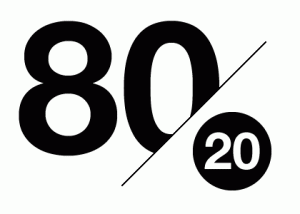Keeping Your Top Talent from Walking Out the Door
You worked so hard to attract this talent. What are you doing to keep them?
 How many millions of dollars have been spent by organizations trying to retain the best of the best? Is it working in your company? While benefits and perks go a long way to keeping you competitive, in the end retention almost always boils down to employee engagement and that ALWAYS boils down to the individual’s immediate supervisor. I prefer the word “leader” to “supervisor” or “manager” but calling someone a leader doesn’t mean that she fills those shoes.
How many millions of dollars have been spent by organizations trying to retain the best of the best? Is it working in your company? While benefits and perks go a long way to keeping you competitive, in the end retention almost always boils down to employee engagement and that ALWAYS boils down to the individual’s immediate supervisor. I prefer the word “leader” to “supervisor” or “manager” but calling someone a leader doesn’t mean that she fills those shoes.
There have been entire books written about retention. I myself have devoted many blogs and live programs to the critically important roles that both good delegation and solid feedback play in keeping employees engaged and wanting to stay.
Today I want to focus on one important aspect of keeping your top talent from walking out the door.
You may consider it to be: Management Heresy
I call it the 80/20 Rule of Good Leadership.
If you want to retain your top talent you must demonstrate to your team that performance counts. To accomplish this, it is imperative that you devote 80% of your leadership time to your top performers and only 20% to those who aren’t making the grade.
It’s counter-intuitive, isn’t it?
Not when you consider that you cannot teach someone something he doesn’t want to learn. Your low performers have undoubtedly been given many opportunities to improve. Maybe you have mentored them, sent them to classes and/or spent time putting them on performance improvement plans. All of that is required to give them the best opportunity to deliver the outcomes you need.
If, however, they are taking up the bulk of your attention at the expense of time spent with your top performers, it’s a recipe for trouble.
Your top performers have a much more significant impact on productivity levels
You would think that getting low performers to increase their results would improve productivity and the bottom line and it will—a little. Conversely, getting your top performers to increase their results will improve the bottom line—a lot!
Your top performers don’t need attention to do their jobs; you can almost always depend on them to get the job done under and any all circumstances. However, If you continually demonstrate that the way to get attention in your organization is to be a low performer, they are much more likely to walk out the door.
Existing jobs cannot compete with the allure of new promises from other companies unless your employees feel appreciated for the talent, skill and knowledge they bring to the table each day.
How NOT to Influence Others
Undeniably, the fastest way to decrease your influence with anyone is to give unsolicited advice. Whether or not you are in a leadership role, using questions, not directions are the better way to influence. In fact, give it a try at home first. If you apply the process outlined below, your family will send me thank you notes.
Have you ever had this happen? You’ve given specific and clear directions to someone about how to perform a task. You’re pleased when that person even acknowledges your suggestions. Yet, when the task is completed, you discover it’s been done in a completely different way!
Margaret J. Wheatley, a writer and management consultant who specializes in Organizational Development has identified the three things others do with your ideas:
1. Ignore
2. Change
3. Criticize (this is the one that creates the most mischief)
Given this reality, why are you wasting your breath? The best quote about this type of situation came from one of my mentors, Esther Hicks who said,
“An answer to a question no one asked you is a wasted answer.”
 Think about that. There you are sprinkling your fairy dust of “incredibly good ideas” over others. Are they paying any attention whatsoever? If they seem to be listening at all, it’s probably because they are formulating all the reasons why your idea won’t work. They may even be planning how they’re going to entertain co-workers later with, “You won’t believe what he suggested I do!”
Think about that. There you are sprinkling your fairy dust of “incredibly good ideas” over others. Are they paying any attention whatsoever? If they seem to be listening at all, it’s probably because they are formulating all the reasons why your idea won’t work. They may even be planning how they’re going to entertain co-workers later with, “You won’t believe what he suggested I do!”
If you doubt this, try an experiment–the next time you’re gifting someone with your good ideas about what they should do, pay very close attention to that person’s face. They may be looking right at you but are they listening? Better still, follow up to see whether they implemented your idea. You will likely find that they did one of the three things Wheatley has identified.
Here is the process for influencing: instead of telling another how to perform a task, outline the end result you are expecting. Then ask, “What are some ways to get this done?”
Let’s say you need a co-worker to produce a report that lies within his/her area of responsibility. You’re not the boss but you need the report. You say, “I need a report on ______________ by next Friday. Can you walk me through some ways to make sure that happens?”
Or you need something from your boss and you know she doesn’t like “upward delegation.” Yet, she’s the only one who can provide what you need. You might say, “In order to finish X project, I need the following information _____________. Can you help me figure out a few ways to get it?”
Insider Tip #1: (hold onto your hat!) People LOVE to be asked for their advice. That’s why we give it out for free–there are not nearly enough people asking us for it!
Insider Tip #2: Never ask for “the best solution” or “the solution” as if there is only one.When they think there is only one correct answer, people freeze; their minds problem-solve more effectively if asked for potential solutions (plural).


